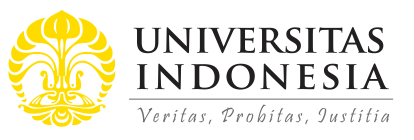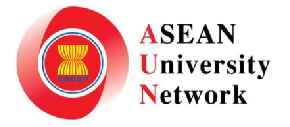
Abstract
This study examined the effectiveness of “AKU PEDULI” psychoeducation in helping the parents of typically developing children to increase their knowledge of special needs children and inclusive education at an inclusive kindergarten. “AKU PEDULI” is abbreviated from Anak Berkebutuhan Khusus dan Pendidikan Inklusif (Special Needs Children & Inclusive Education). Quantitative methods were used in both the pre-test and post-test parts of the research. Six mothers aged 28–34 years, of typically developing children were selected to participate in the study through accidental sampling. Participants were required to be parents of typically developing children who attend an inclusive kindergarten and who have a minimum educational attainment of high school completion. The psychoeducation material consisted of two topics: special needs children and inclusive education. Participant's knowledge was measured using a questionnaire survey. Questionnaire data were tested using the Wilcoxon signed rank test. Statistical analysis revealed that psychoeducation "AKU PEDULI" did not significantly increase parents’ knowledge of special needs children and inclusive education. However, the analysis revealed an increase in knowledge regarding interaction with children with special needs, the definition of inclusive education and the role of parents in inclusive education. An action plan devised by participants in psychoeducation "AKU PEDULI" revealed an awareness of the need for their involvement in the inclusive kindergarten. The psychoeducation program described in this study can be used as an intervention by inclusive kindergartens to disseminate information about inclusive education to parents. The findings suggest that interviews and observation methods should be used to measure participants' knowledge before and after psychoeducation.
References
Aini, F., & Kurniawati, F. (2018). The effectiveness of SERASI intervention program for improving parents attitudes toward students with disabilities. Intervention and Applied Psychology 2018. Retrieved from http://conference.ui.ac.id/iciap/iciap2018/paper/view/17311
Anastasi, A., & Urbina, S. (1997). Psychological testing (7th ed.). New Jersey, US: Pearson Education. https://psycnet.apa.org/record/1998-07223-000
Azjen, I. (1991). The theory of planned behavior. Organizational Behavior and Human Decision Processes, 50, 179–211. Retrieved from http://citeseerx.ist.psu.edu/viewdoc/download?doi=10.1.1.317.9673&rep=rep1&type=pdf
Ajzen, I. (2011). The theory of planned behavior. Organizational Behavior and Human Decision Processes, 50(2), 179-211. https://doi.org/10.1016/0749-5978(91)90020-T
Baken, L. (2014). The piaget theory of cognitive development: An educational implication. Educational psychology. 1(9), 1-8. https://www.researchgate.net/publication/265916960_THE_PIAGET_THEORY_OF_COGNITIVE_DEVELOPMENT_AN_EDUCATIONAL_IMPLICATIONS
Beckett, A. E. (2009). “Challenging disabling attitudes, building an inclusive society”: Considering the role of education in encouraging non-disabled children to develop positive attitudes towards disabled people. British Journal of Sociology of Education, 30(3), 317-329. https://doi.org/10.1080/01425690902812596
Brown, N. (2003). Psychoeducational group: Process and practice (2nd ed.). New York: Brunner-Routledge.
Cohen, R. J., Swerdlik, M. E., & Stunman, E. D. (2013). Psychological testing and assessment: An introduction to tests and measurement (8th ed.). US: McGrawhill
de Boer, A. A., & Munde, V. S. (2014). Parental attitudes toward the inclusion of children with profound intellectual and multiple disabilities in general primary education in the Netherlands. Journal of Special Education, 49(3), 179-187. https://doi.org/10.1177/0022466914554297
Doménech, A., & Moliner, O. (2014). Families beliefs about inclusive education model. Procedia-Social and Behavioral Sciences, 116, 3286-3291. https://doi.org/10.1016/j.sbspro.2014.01.749
Donker, T., Griffiths, K. M., Cuijpers, P., & Christensen, H. (2009). Psychoeducation for depression, anxiety and psychological distress: A meta-analysis. BMC Medicine, 7(1), 1-9. https://doi.org/10.1186/1741-7015-7-79
Gravetter, F. J., & Forzano, L. B. (2012). Research methods for the behavioral sciences (4th ed.), Belmont: Wadsworth.
Guralnick, M. J. (1990). Social competence and early intervention. Journal of Early Intervention, 14(1), 3-14. https://doi.org/10.1177/105381519001400101
Henniger, M. L. (2009). An introduction to teaching young children (4th ed.). New Jersey: Pearson
Hilbert, D. (2014). Perceptions of parents of young children with and without disabilities attending inclusive preschool programs. Journal of Education and Learning, 3(4), 49-59. https://doi.org/10.5539/jel.v3n4p49
Kalyva, E., Georgiadi, M., & Tsakiris, V. (2007). Attitudes of greek parents of primary school children without special educational needs to inclusion. European Journal of Special Needs Education, 22(3), 295-305. https://doi.org/10.1080/08856250701430869
Kementerian Pendidikan dan Kebudayaan Republik Indonesia. (2018). Penyediaan layanan pendidikan anak usia dini. Peraturan Menteri Pendidikan Dan Kebudayaan Republik Indonesia No. 18, p. 18. https://doi.org/10.1017/CBO9781107415324.004
Klein, S. M., & McCabe, H. (2007). From mother to disability professional: Role change, resilience, and rewards. Journal of Early Intervention, 29(4), 306-319. https://journals.sagepub.com/doi/pdf/10.1177/105381510702900403
Kolb, D. A. (1984). Experiential learning: Experience as the source of learning and development. Prentice Hall, Inc., (1984), 20–38. https://doi.org/10.1016/B978-0-7506-7223-8.50017-4
Krathwohl, D. R. (2002). A revision of bloom’s taxonomy: An overview. Theory Into Practice, 41(4), 212-218. https://www.mbaea.org/media/documents/A_Revision_of_Blooms_Krathwohl_EF1B6C773BF4F.pdf
Lai, Y. C., & Gill, J. (2014). Multiple perspectives on integrated education for children with disabilities in the context of early childhood centers in Hong Kong. Educational Review, 66(3), 345-361. https://doi.org/10.1080/00131911.2013.780007
Lewin, K. (1947). Field theory in social science. New York: Harper & Row
Lutfi, H. E. (2009). Attitudes toward inclusion of special needs children in regular schools (A case study from parents perspective). Educational Research and Reviews, 4(4), 164-172. https://www.researchgate.net/publication/228855456_Attitudes_toward_inclusion_of_children_with_special_needs_in_regular_schools_A_case_study_from_parents'_perspective
Magumise, J., & Sefotho, M. M. (2018). Parent and teacher perceptions of inclusive education in Zimbabwe. International Journal of Inclusive Education, 1-17. https://doi.org/10.1080/13603116.2018.1468497
McGarty, A. M., & Melville, C. A. (2018). Parental perceptions of facilitators and barriers to physical activity for children with intellectual disabilities: A mixed methods systematic review. Research in Developmental Disabilities, 73, 40-57. https://doi.org/10.1016/j.ridd.2017.12.007
Millar, M. G., & Millar, K. U. (1996). The effects of direct and indirect experience on affective and cognitive responses and the attitude-behavior relation. Journal of Experimental Social Psychology, 32(6), 561-579. https://doi.org/10.1006/jesp.1996.0025
Miller, L. J., Strain, P. S., Boyd, K., Hunsicker, S., McKinley, J., & Wu, A. (1992). Parental attitudes toward integration. Early Childhood Special Education, 12(2), 230-246. https://doi.org/10.1177/027112149201200207
Noddings, N. (1992). The challenge to care in schools: An alternative approach to education. New York: Teachers College Press. https://stars.library.ucf.edu/cirs/2685/
Ozyurek, A. (2012). The effect of parental acceptance in the success of inclusion in preschool education. The International Journal of Social Science, 3(1), 1-10. https://www.tijoss.com/3rd%20Volume/arzu.pdf
Phillips, L., Sapona, R. H., & Lubic, B. L. (1995). Developing partnerships in inclusive education: One school's approach. Intervention in School and Clinic, 30(5), 262-272. https://doi.org/10.1177%2F105345129503000503
Sanger, P., & Pavlova, I. (2016). Applying andragogy to promote active learning in adult education in Russia. International Journal of Engineering Pedagogy, 6(4), 41-44. https://online-journals.org/index.php/i-jep/article/view/6079
Sheeran, P., & Orbell, S. (2000). Self-schemas and the theory of planned behaviour. European Journal of Social Psychology, 30(4), 533–550. https://doi.org/10.1002/1099-0992(200007/08)30:43.0.CO;2-F
Sira, N., Maine, E., & McNeil, S. (2018). Building alliance for preschool inclusion: Parents of typically developing children, attitudes, and perceptions. Journal of Early Childhood Teacher Education, 39(1), 32-49. https://doi.org/10.1080/10901027.2017.1415238
Sniehotta, F. F., Scholz, U., & Schwarzer, R. (2005). Bridging the intention-behavior gap: Planning, self-efficacy, and action control in the adoption and maintenance of physical exercise. Psychology & Health, 20(2), 143-160. https://doi.org/10.1080/08870440512331317670
Stahmer, A. C., Carter. C., Baker M., & Miwa, K. (2003). Parent perspectives on their toddlers’ development: Comparison of regular and inclusion childcare. Early Child Development and Care, 173(5), 477-488. https://doi.org/10.1080/0300443032000088267
Supratiknya. (2008). Merancang Program Dan Modul Psikoedukasi.
Tafa, E., & Manolitsis, G. (2003). Attitudes of greek parents of typically developing kindergarten children towards inclusive education. European Journal of Special Needs Education, 18(2), 155-171. https://doi.org/10.1080/0885625032000078952
Undang-undang Republik Indonesia. (2016). Penyandang disabilitas. In Undang-Undang Republik Indonesia No.8.
Recommended Citation
Arman, Andi Nur Zamzam and Kurniawati, Farida
(2019).
Psychoeducation “AKU PEDULI” for parent with typically developing children at an Inclusive Kindergarten.
ASEAN Journal of Community Engagement, 3(2).
Available at: https://doi.org/10.7454/ajce.v3i2.1060







